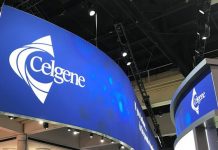Intra-Cellular’s success and failure demonstrate the difficulty of developing psychiatric drugs. Unqualified clinical success in depression is particularly challenging, as high placebo responses can muddy a treatment’s effect.
Earlier this year, the FDA rejected a depression drug from Alkermes that also yielded split clinical results. Alkermes executives had pointed to high placebo rates in their arguments for the treatment’s approval, but failed to convince regulators.
Intra-Cellular’s two studies tested lumateperone as a treatment for major depressive episodes associated with bipolar disorder. A third bipolar trial expected to read out next year is testing the drug as an adjunctive therapy with lithium or valproate.
Even with the mixed data, Mates said the company wouldn’t wait for results from the third study to begin talks with the FDA.
Both studies tested lumateperone against the same primary endpoint, using a 10-item checklist to gauge the drug’s ability to reduce depression severity on measures like reduced appetite, concentration and suicidal thoughts. Clinicians rate each item on a six-point scale, resulting in total scores ranging from 0 points to 60 points.
Mates cited the difference in placebo response as a contributing factor in the split study outcomes.
In the successful study, the mean reduction from baseline among those given lumateperone was 17 points, compared to an average 12-point drop for those on placebo. Patients taking placebo in the other study, meanwhile, saw their scores drop by an average of 20 points — roughly the same as those taking the experimental drug.
On the company’s conference call Monday, Wall Street analysts sought a reason for that unexpectedly high placebo response, with several asking whether geographic or demographic factors played a role.
The successful trial was global, with about 30% of the 381 patients from the U.S. The other study, meanwhile, enrolled 554 U.S. patients. It also had a third arm, testing a lower daily dose of the drug.
Mates argued placebo responses are typically higher in the U.S., and added that a three-arm study can increase expectation bias, as patients know they have a two-third chance of receiving the drug. That said, Intra-Cellular decided to proceed with the three-arm trial and has structured its adjunctive study similarly.
Investors, however, didn’t appear to be convinced, as shares dropped by more than 20% Monday. Intra-Cellular’s share price has fallen about 50% from a year ago.
Bipolar disorder is not the lead indication for lumateperone. The company has already submitted the drug for regulatory approval in schizophrenia, with an FDA decision expected in September.
But bipolar disorder, marked by alternating mood episodes between mania and depression, is a far more prevalent condition with a patient population of up to 6 million in the U.S.








